Why We Need to Revitalize Organic Seed Farming
As the seed business becomes more and more consolidated, our plants and farmers are suffering. But public plant breeders are cautiously optimistic.
Why We Need to Revitalize Organic Seed Farming
As the seed business becomes more and more consolidated, our plants and farmers are suffering. But public plant breeders are cautiously optimistic.
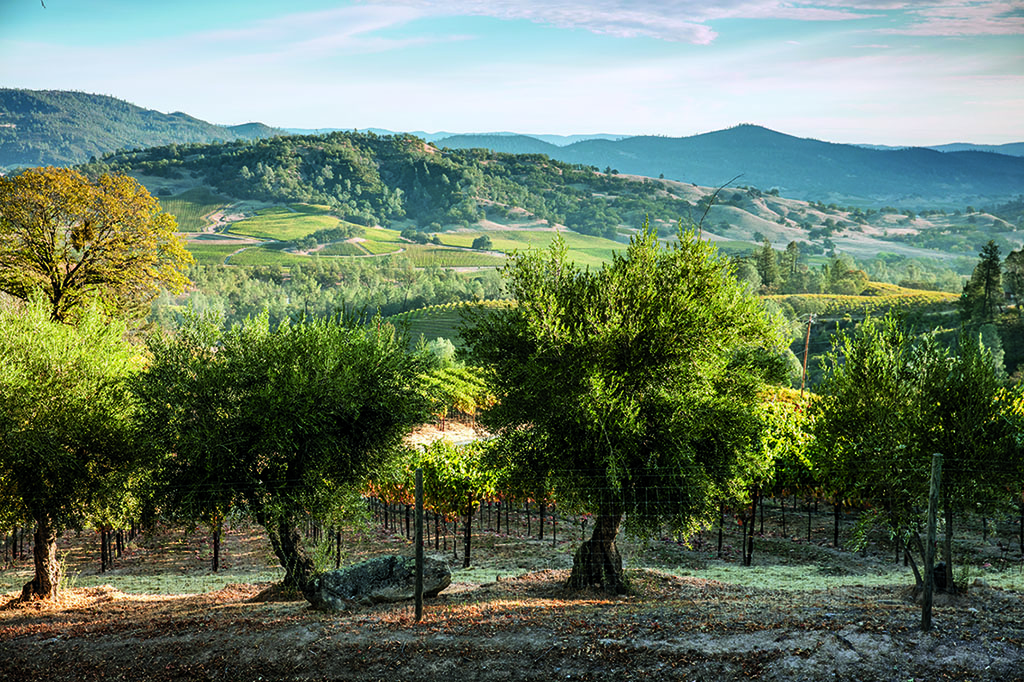
The Root of the Issue
Over the years, the seed business has consolidated in a few corporate hands. In fact, Monsanto, Syngenta, and DuPont collectively control 53 percent of the global commercial seed market, double the share these three held in 1996. These companies’ seeds are genetically engineered to withstand specific herbicides and pesticides, which are often manufactured by the same company. For example, Monsanto’s “Roundup Ready” seeds are designed to resist glyphosate, the active ingredient in Monsanto’s Roundup herbicide. This has contributed to a lack of diversity: herbicide-resistant seeds from “Big Ag” companies currently account for 89 percent of the corn and cotton, and 92 percent of the soybeans, grown on U.S. soil.
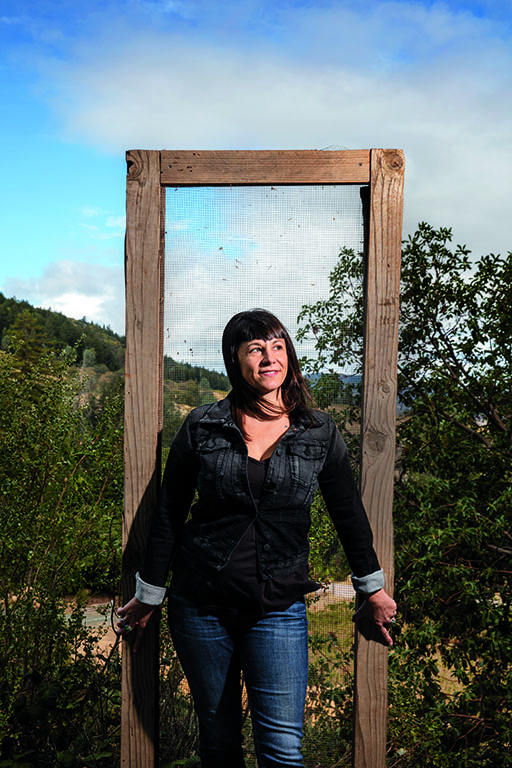
One Unexpected Outcome: Fear
As a result, plant breeding has been given a bad rap. “People think [it] means ‘genetically engineered,’” says Lane Selman, a researcher at Oregon State University and the founder of the Culinary Breeding Network, which connects breeders and chefs.
“The heirloom boom of the nineties helped people see the value of preserving seed, but they don’t understand that it can get even better,” says Selman. “Public plant breeders are creating varieties that are more resilient and more appropriate for the future.” Adapting seed to changing climates, resource availability, and environmental conditions help mitigate farming risks.
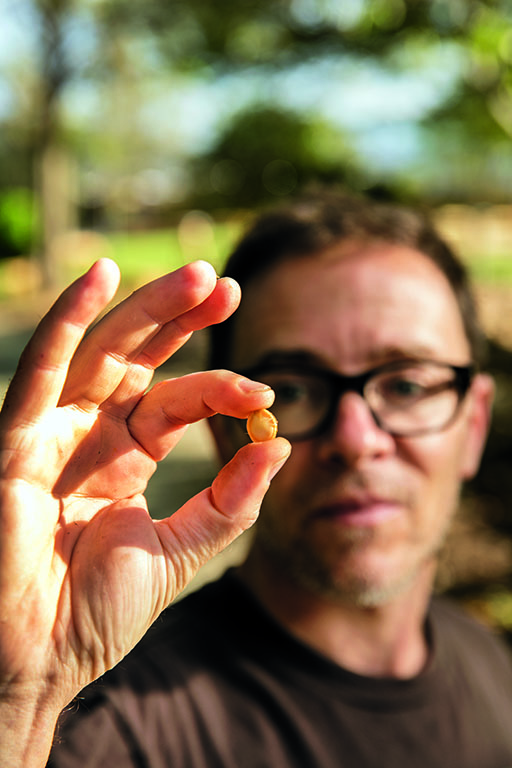
The Importance of Organically Farmed Seed
According to Matt Dillon, director of agricultural policy and programs at Clif Bar, “Seeds created in a conventional, chemically dependent environment yield far less resilient plants.” Selman agrees. “Herbicides get rid of the weeds, irrigation supplies nitrogen to the roots so the plants never have to scavenge,” she explains. “You create these really needy plants.” The problem with that is obvious: seed is a farmer’s first defense against pests, disease, and other production issues – it provides the genetic tools needed to confront the day-to-day challenges of organic agriculture.
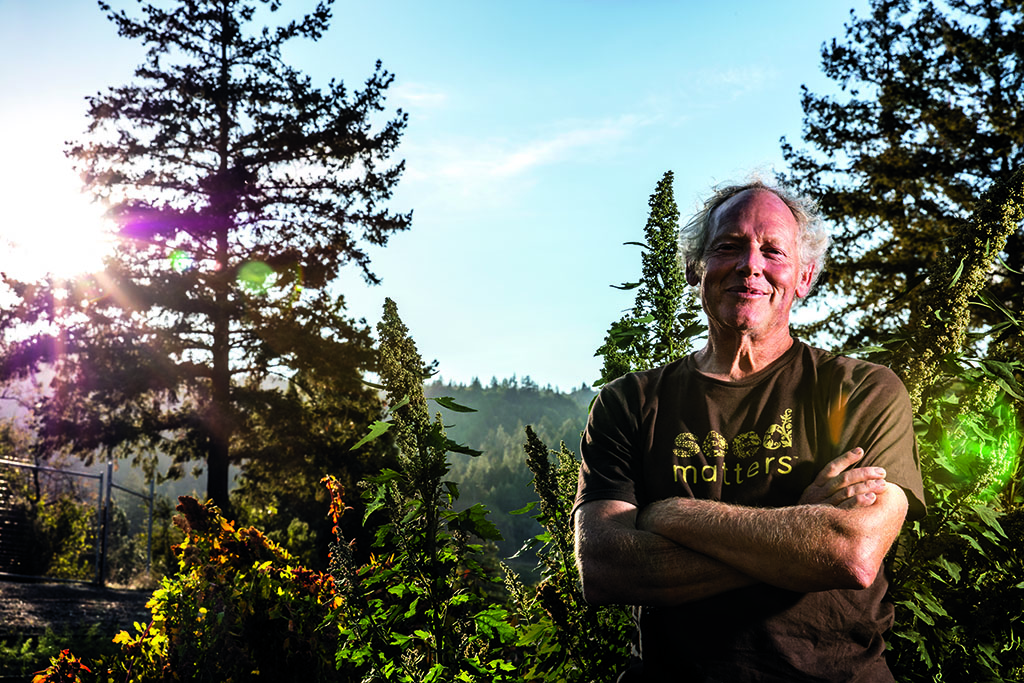
How to Fix the Problem
Unfortunately, the increased privatization of the seed industry has led to a decrease in publicly funded plant breeding. The number of university scientists developing non-patented, open-source hybrids and cultivars has dwindled dramatically.
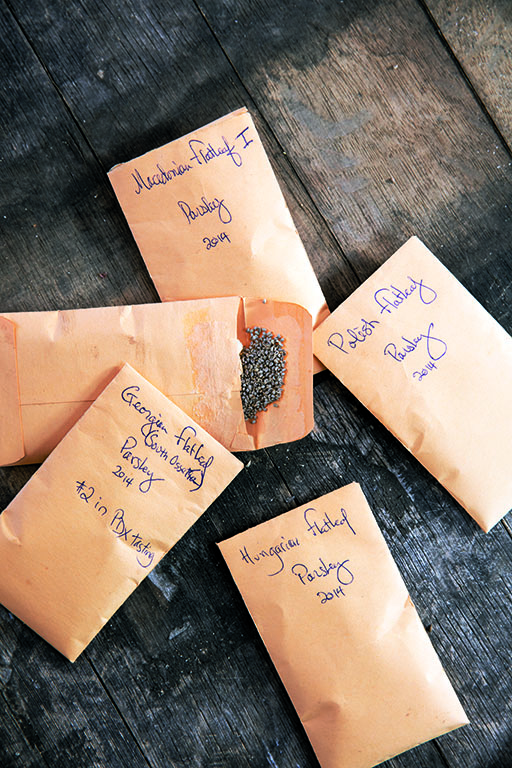
“Public plant breeding was on life support for a while,” says Bill Tracy, chair of the University of Wisconsin”“Madison’s Department of Agronomy and one of only two public sweet-corn breeders left in the United States. According to the Organic Seed Alliance’s 2016 report, State of Organic Seed, public and private investments in organic plant breeding and other organic seed research have increased by $22 million in the last five years. Clif Bar’s Seed Matters initiative, which Dillon directs, has raised $1.5 million for organic seed research and education.
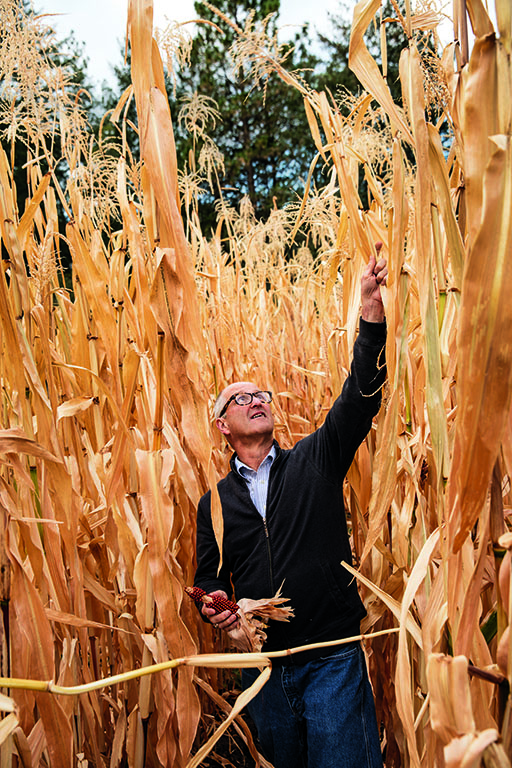
Frank Morton, a plant breeder who’s spent much of the past 30-odd years cultivating new lettuces, quinoas, and other edible plants, says he’s noticed a great deal of enthusiasm among the next generation. “They’re realizing seed is just so primary. There used to be clubs for people who saved seeds,” he adds. “You don’t hear about them nowadays, but I could see it catching on in a second.”
Selman is also optimistic. “I feel like people are interested in food, then chefs, then farmers, and this is just the next layer of understanding, like an onion,” she says. “I think this is hopefully the time that people are going to be curious and help build awareness about seed.”
Adapted from The Outsize Importance of the Tiny Organic Seed by Rachel Levin.
SaveSave
Follow us
This work is licensed under a Creative Commons Attribution-NoDerivatives 4.0 International License.
Want to republish a Modern Farmer story?
We are happy for Modern Farmer stories to be shared, and encourage you to republish our articles for your audience. When doing so, we ask that you follow these guidelines:
Please credit us and our writers
For the author byline, please use “Author Name, Modern Farmer.” At the top of our stories, if on the web, please include this text and link: “This story was originally published by Modern Farmer.”
Please make sure to include a link back to either our home page or the article URL.
At the bottom of the story, please include the following text:
“Modern Farmer is a nonprofit initiative dedicated to raising awareness and catalyzing action at the intersection of food, agriculture, and society. Read more at <link>Modern Farmer</link>.”
Use our widget
We’d like to be able to track our stories, so we ask that if you republish our content, you do so using our widget (located on the left hand side of the article). The HTML code has a built-in tracker that tells us the data and domain where the story was published, as well as view counts.
Check the image requirements
It’s your responsibility to confirm you're licensed to republish images in our articles. Some images, such as those from commercial providers, don't allow their images to be republished without permission or payment. Copyright terms are generally listed in the image caption and attribution. You are welcome to omit our images or substitute with your own. Charts and interactive graphics follow the same rules.
Don’t change too much. Or, ask us first.
Articles must be republished in their entirety. It’s okay to change references to time (“today” to “yesterday”) or location (“Iowa City, IA” to “here”). But please keep everything else the same.
If you feel strongly that a more material edit needs to be made, get in touch with us at [email protected]. We’re happy to discuss it with the original author, but we must have prior approval for changes before publication.
Special cases
Extracts. You may run the first few lines or paragraphs of the article and then say: “Read the full article at Modern Farmer” with a link back to the original article.
Quotes. You may quote authors provided you include a link back to the article URL.
Translations. These require writer approval. To inquire about translation of a Modern Farmer article, contact us at [email protected]
Signed consent / copyright release forms. These are not required, provided you are following these guidelines.
Print. Articles can be republished in print under these same rules, with the exception that you do not need to include the links.
Tag us
When sharing the story on social media, please tag us using the following: - Twitter (@ModFarm) - Facebook (@ModernFarmerMedia) - Instagram (@modfarm)
Use our content respectfully
Modern Farmer is a nonprofit and as such we share our content for free and in good faith in order to reach new audiences. Respectfully,
No selling ads against our stories. It’s okay to put our stories on pages with ads.
Don’t republish our material wholesale, or automatically; you need to select stories to be republished individually.
You have no rights to sell, license, syndicate, or otherwise represent yourself as the authorized owner of our material to any third parties. This means that you cannot actively publish or submit our work for syndication to third party platforms or apps like Apple News or Google News. We understand that publishers cannot fully control when certain third parties automatically summarize or crawl content from publishers’ own sites.
Keep in touch
We want to hear from you if you love Modern Farmer content, have a collaboration idea, or anything else to share. As a nonprofit outlet, we work in service of our community and are always open to comments, feedback, and ideas. Contact us at [email protected].by Rachel Levin, Modern Farmer
September 13, 2017
Modern Farmer Weekly
Solutions Hub
Innovations, ideas and inspiration. Actionable solutions for a resilient food system.
ExploreExplore other topics
Share With Us
We want to hear from Modern Farmer readers who have thoughtful commentary, actionable solutions, or helpful ideas to share.
SubmitNecessary cookies are absolutely essential for the website to function properly. This category only includes cookies that ensures basic functionalities and security features of the website. These cookies do not store any personal information.
Any cookies that may not be particularly necessary for the website to function and are used specifically to collect user personal data via analytics, ads, other embedded contents are termed as non-necessary cookies.
Matt Dillon is full of bunk, as is the author. He has no proof that any modern varieties are “needy” That and the rest of this article are just fear mongering nonsense. There are plenty of seed companies. The big companies ;produce nonGE and organic seeds as well.
Very interesting let’s see what you have